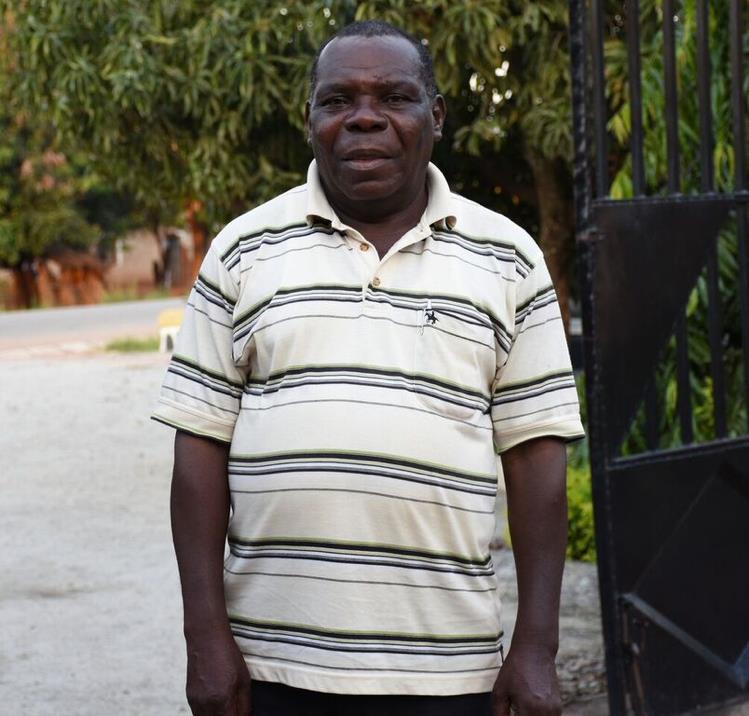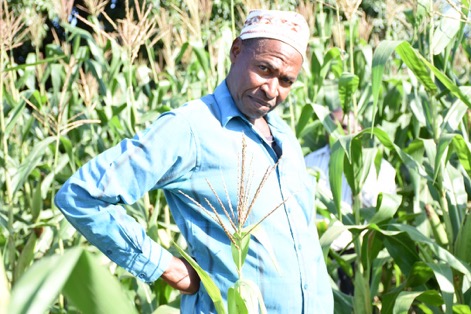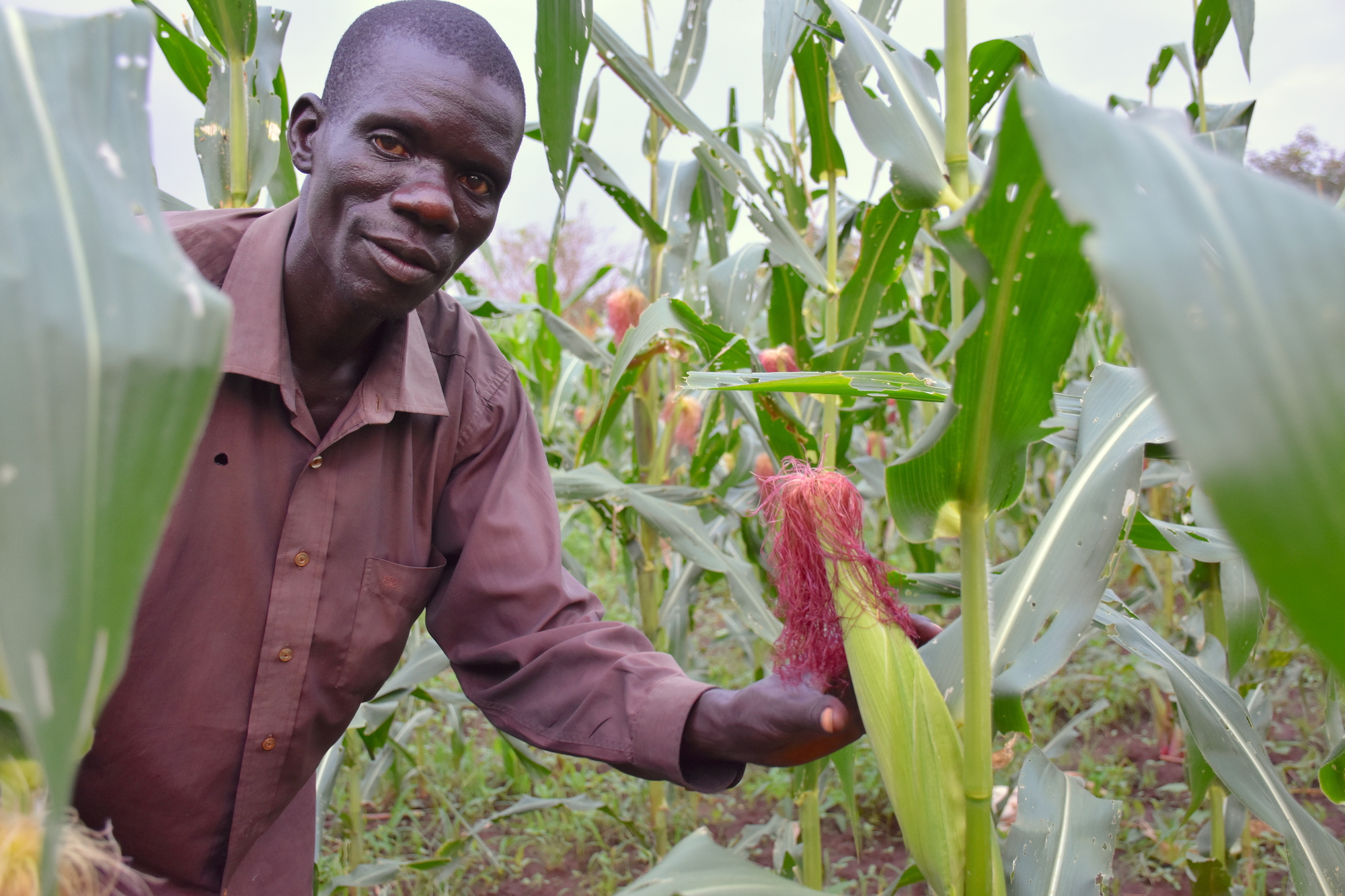
NAIROBI, Kenya (CIMMYT) — Locally adapted marketing initiatives by an innovative seed company are leading farmers in the area around one of Tanzania’s largest agricultural towns to plant Lubango, a high-performing, drought-tolerant maize variety.
Lubango, which means “blessed” in local Sukuma language, was first produced by IFFA Seed in 2015 and is already replacing traditional seeds on farms across Tanzania as a result of the company’s hands-on, targeted marketing approach. Headquartered in the city of Arusha since 2008, IFFA now dedicates more than 140 hectares (345 acres) of Nzega farmland to Lubango production to meet the increasing demand for the seed.
Demonstration plots in 10 of Tanzania’s 12 districts have made a big impact, said Emmanuel Mponda, IFFA seed promotions manager, who believes that demonstration plots are the most effective of all the marketing tools because they allow farmers to see direct benefits in their fields.
“Lubango was created with the smallholder farmer in mind,” Mponda said. “It’s drought-tolerant, affordable, high-yielding, and great tasting.”

Part of Mponda’s work involves ensuring farmers are equipped with smart agronomic practices. For example, farmers who plant and space crops in a straight line, as opposed to haphazardly scattering seeds, create ample space for weeding, save on inputs such as fertilizer and efficiently use sunlight and soil nutrients.
“As seasons pass, I’m amazed at the progress farmers have made by accepting changes in their farming practices to maximize gains,” Mponda said, adding that novel promotion strategies are necessary to compete with the numerous other seed companies in the country.
“We’re certainly leveraging modern marketing methods to raise awareness on drought-tolerant varieties, and Lubango in particular. So far, audio-visual tools are a hit,” Mponda said.
![“This was my first try planting a drought-tolerant hybrid variety, and [after] seeing all this healthy maize, I am a believer,” says Daniel Reuben (above), a farmer of over 30 years regarding Lubango. “I can already tell that I will have a good harvest from the double cobs on each plant.” Normally, Reuben uses all his harvest to feed his family, but this year he expects to be able to produce more to sell and earn extra profit. Photo: Kelah Kaimenyi/CIMMYT.](https://www.cimmyt.org/wp-content/uploads/2016/04/kelah_4.jpg)
Through technical and financial support and capacity building initiatives, CIMMYT’s Drought Tolerant Maize for Africa Seed Scaling (DTMASS) project works closely with IFFA Seed Company and other private partners throughout eastern and southern Africa to bring affordable, improved maize seed to 2.5 million people. DTMASS aims to meet demand and improve access to good-quality maize through production of improved drought-tolerant, stress-resilient and high-yielding maize varieties for smallholder farmers through 2020.
 Climate adaptation and mitigation
Climate adaptation and mitigation 